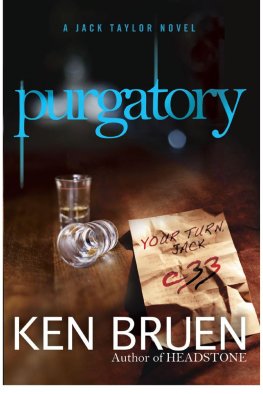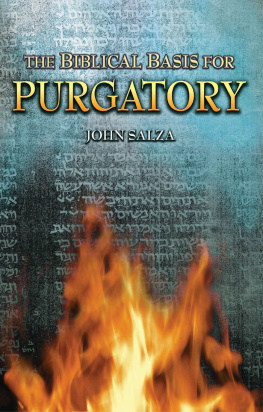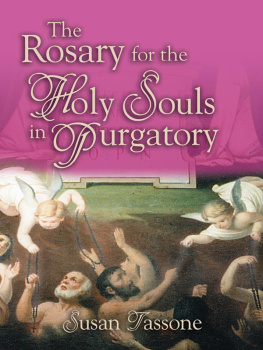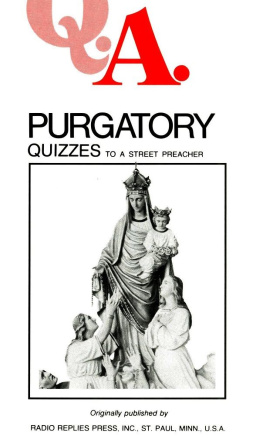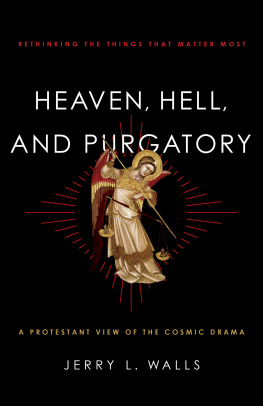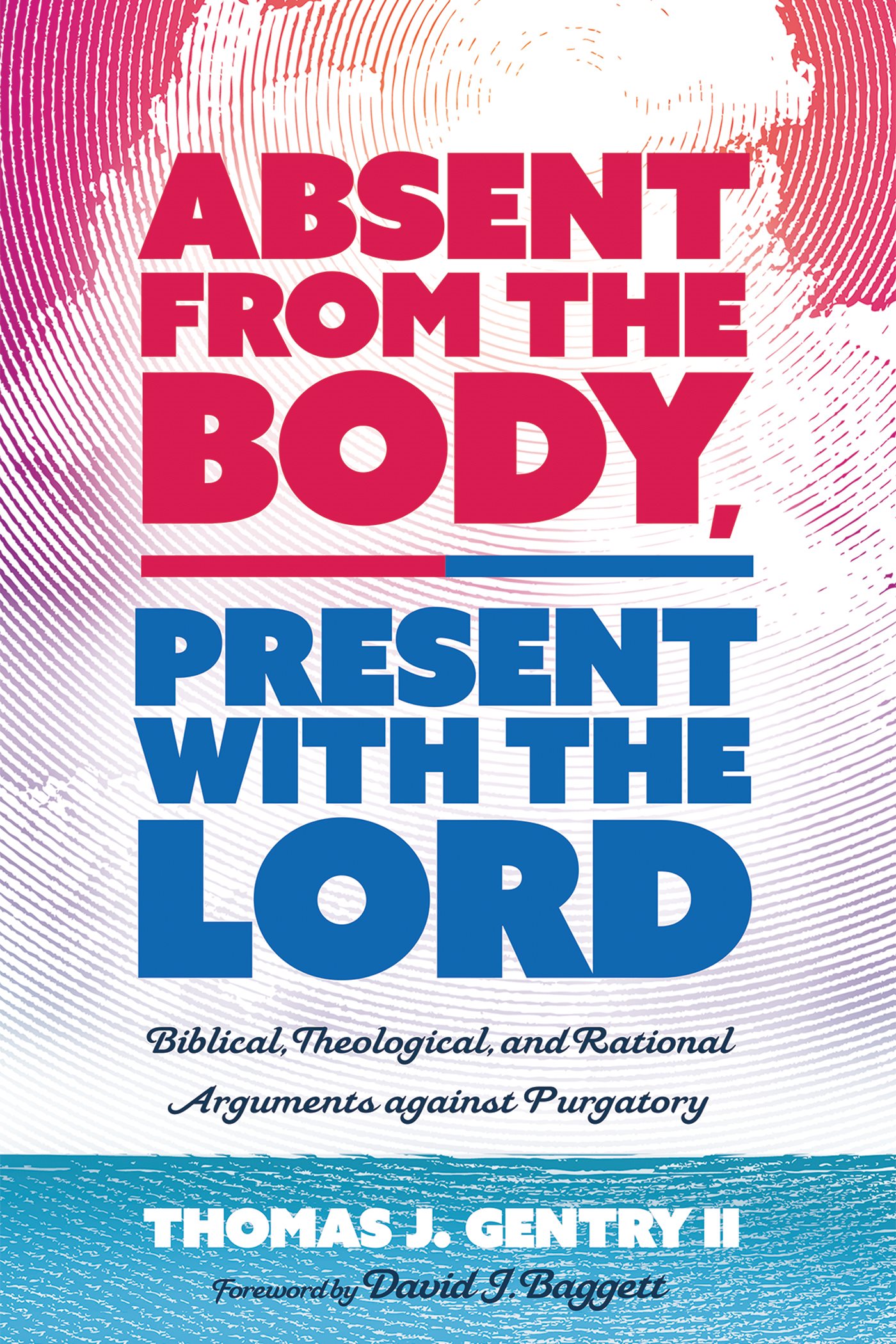Foreword
I n evangelical subculture theres often a knee-jerk rejection to doctrines of purgatory. Many dont even bother to dignify the discussion with any serious consideration, relegating it to a waste of time. They dont merely reject purgatory or entertain reservations but refuse to subject it to rigorous and careful examination and scrutiny, thinking it unworthy of the time and effort.
When I initially became aware of the thesis of this booka rejection of purgatory on biblical, theological, and rational groundsI was skeptical that it would add anything new to the discussion. I was afraid it would offer the same tired talking points, pick some low-hanging fruit, and reinforce the built-in evangelical bias against purgatory.
My friendship with T. J. Gentry should have mitigated those worries and this bias of my own. Although he does at this point come down resistant to purgatory, his is not an attempt merely to tap into prior prejudices or exploit subcultural momentum against the view. His are heartfelt and principled reasons for skepticism, and he endeavors to explicate those reasons in an irenic spirit and rigorous manner. Even still, he is careful to point out at the end of this particular analysis that the discussion is far from over and theres a great deal of fertile material still to discuss, and, as is his wont, he welcomes and encourages such a vigorous exchange.
Readers of all stripes can learn a great deal from this authors warmth and open heart and mind. I know I can. Although, truth be told, I tend to disagree with some of his conclusionswhile wholly resonating with othersI accord him and this book accolades for contributing to this important discussion. T. J. is both a dear brother in Christ and a kindred spirit, and Im confident he wont overly rib me if, on that final day, we find out he was right and I was wrong.
If Im right, of course, I do intend to rib him endlessly, quite literally. Clearly, hes the better man.
Which reminds me to echo of T. J. Gentry what John Wesley once said of George Whitefield, when asked by a saintly woman, Dear Mr. Wesley, do you expect to see dear Mr. Whitefield in heaven?
After a lengthy pause, Wesley replied, No, madam, to which she wistfully replied, Ah, I was afraid you would say so.
To which Wesley added, Do not misunderstand me, madam. George Whitefield was so bright a star in the firmament of Gods glory, and will stand so near the throne, that one like me, who am less than the least, will never catch a glimpse of him.
David J. Baggett
Lynchburg, Virginia
Introduction
Why This Book? An Overview of the Discussion about Purgatory
W hat happens when Christians die? The official teaching of the Roman Catholic Church is that, ordinarily, Christians enter into an intermediate state called purgatory, where they experience a season of purging from moral impurities that remain in their souls at the time of death. This purging occurs for varying durations, based on the type of impurities, to prepare the Christian to eventually behold the beatific vision of God in heaven. These views of purgatory are the subject of discussion that follows. The argument I hope to make successfully is that the traditional Roman Catholic and evangelical teachings favoring purgatory are incorrect for biblical, theological, and rational reasons. I ask the reader to bear in mind that this work is an introduction to the topic and a brief one at that. It may prove helpful to think of this work as a short handbook on purgatory and why it is inconsistent with traditional evangelicalism along biblical, theological, and rational lines of argumentation.
Before we begin, here is a well-intentioned disclaimer: I confess that I am a hat-in-hand evangelical, holding my convictions sincerely butat least this is my intentionwithout arrogance or lacking epistemic humility. I am a traditional evangelical, but my heart resonates with the aspects of the mere Christianity approach offered by C. S. Lewis, as I consciously recognize that the church is bigger than my convictions, and there are many truths that I hold in common with those I will critique and disagree with in the pages that follow. My purpose is not to unnecessarily offend my Roman Catholic or purgatory-evangelical friends (this is the shorthand phrase I will use throughout to describe them). I am a non-Catholic, but I am not focused on being anti-Catholic. Likewise, I am a non-purgatory-evangelical, but I am not fixated on being an anti-purgatory-evangelical. I am merely entering the conversation that has been going on for many generations. I will make a case against any form of purgatory and in favor of the traditional evangelical position for immediate glorification upon death, and thereby invite further constructive dialogue. I even devote the entirety of chapter to the topic of ongoing discussion. Whether you agree or disagree, lets consider this topic amicably and honestly.
The Importance of the Discussion
This discussion is important for several reasons. Since the time of the Protestant Reformation purgatory has been considered an affront to two critical evangelical doctrines related to authority and salvation. Regarding authority, the Protestant Reformers argued that the Scriptures alone are the final authority for believers in all matters of faith and life (cf. Tim :). The doctrine of purgatory, the Reformers argued, is found nowhere in Scripture, but derives instead from corrupted church tradition, and is actually contrary to explicit biblical teachings regarding what happens when a believer dies (cf. Cor :). Regarding salvation, the Protestant Reformers argued that salvation is by grace through faith alone in Christ (cf. Eph :). The Reformers concluded that the Roman Catholic teaching of purgatory, in contradiction to the teaching of faith alone, meant that salvation was a process of works that continued into the intermediate state. Thus, the Reformers concluded that the doctrine of purgatory made salvation a result of human effort.
Additionally, while different from the Roman Catholic approach to purgatory, there are purgatory-evangelicals who are now teaching that it is possible to affirm the doctrines of Scriptures ultimate authority and salvation by faith alone, and still embrace some variation of the doctrine of purgatory. These purgatory-evangelicals, it will be argued, are introducing teachings into the Protestant church that are inconsistent with historical evangelical teaching, and ultimately undermine the authority of Scripture and the sufficiency of the atoning work of Jesus.
Finally, this problem is significant regarding its relationship to the motivations of a growing number of Protestants who are leaving their respective denominations and evangelical beliefs and becoming Roman Catholic. Their reasoning, in some instances, relates to a desire to embrace teachings that are in keeping with the long-standing tradition of the Roman Catholic Church, including purgatory. Sometimes, however, those converting to Roman Catholicism have not been challenged on the unbiblical basis of their new conclusions, nor have they seriously considered the traditional evangelical teaching regarding what happens to Christians when they die. Drawn, as they are, to things in Roman Catholicism such as liturgy, a sense of historical continuity, and the venerable breadth and depth of teaching by those giants of the faith like Augustine, Aquinas, or even contemporary converts like theologian Scott Hahn, they leave traditional evangelicalism to board the boat of Rome without considering that there may be barnacles of error attached to the hull.


